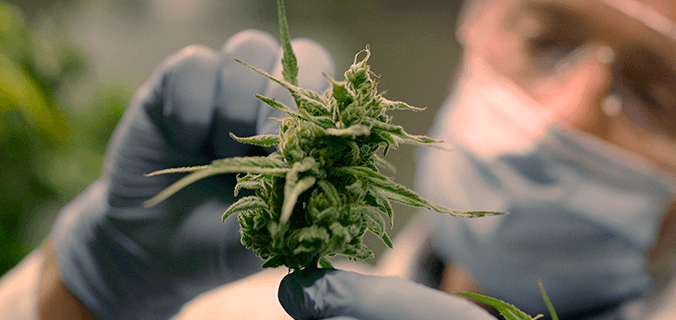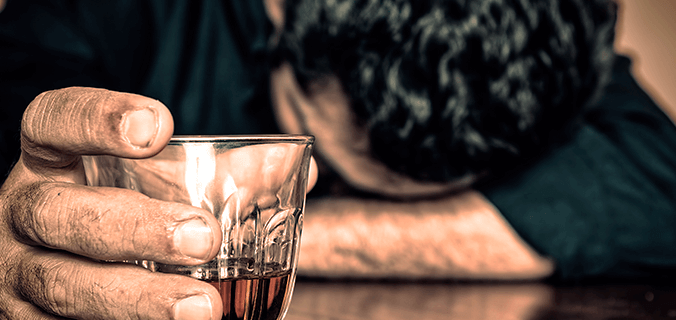Top 10 Myths About Smoking Cannabis
Published : Jun 17, 2020

Cannabis is becoming more accepted in many places, but there are still falsehoods being spread about it. Well, let’s clear up some of the misconceptions. Here are the top 10 myths about smoking cannabis—debunked!
No question, cannabis users have it much better these days than just a few decades ago. In many countries, we are now seeing cannabis laws becoming more relaxed and consumption more tolerated than ever. In some places, such as Canada and certain US states, recreational cannabis is fully legal.
Yet, cannabis still hasn’t entirely shed its negative stigma—echoes from a time when tales of “reefer madness” were spread and criminalising cannabis was used as a way to perpetuate racial injustice.
However, these days, with people having access to all kinds of information on the web, it’s still sometimes difficult to tell what is true and what’s not. Some old tales, it seems, just don’t fade away as easily as others. But alas, we can do our part to clear up some of the misconceptions. Let’s take a look at some of the most common myths about cannabis!
1. CANNABIS IS A GATEWAY DRUG
• False
One of the leading cannabis theories taught in schools is that of the “gateway drug”. In essence, this concept argues that cannabis use leads to experimentation with harder drugs.
Tales of individuals smoking a single joint before trying heroin are the standard scare-tactics used by gateway drug proponents. In reality, the truth is much less severe, not to mention more nuanced. It’s true that many hard drug users start out smoking weed, but there is no hard evidence to suggest that cannabis itself is responsible for this development. Since cannabis is one of the most accessible drugs, and because it is generally well-tolerated, it makes sense that it would be the first port of call for those looking to experiment with psychoactive substances.
On the other hand, a national study from 2015 found that the majority of lifetime cannabis users never progressed to harder drugs, and that psychological and socioeconomic factors played a large role herein. Just like your aunty who enjoys her glass of wine at night, many people who enjoy weed have no interest in harder drugs at all.
2. SMOKING WEED MAKES YOU LAZY
• False
There’s no denying that some cannabis strains can knock you on your ass, but not all strains have this effect. In fact, there are cultivars that do just the opposite, energising you and making you feel more alert and focused. But even among folks who enjoy their “knockout strains” at night, there is no evidence that this relaxed toking leads to laziness.
Plenty of successful figures in business and media are occasional cannabis users. Frequency of use and other factors play into how lazy you may be as a cannabis user, but that onus falls more on the user than the herb. Smoking all day long is bound to make you sluggish and unmotivated, but smoking to accentuate your lifestyle when appropriate appears to be just fine.

3. YOU CANNOT BECOME ADDICTED TO CANNABIS
• False
Although it’s true that cannabis isn’t addictive in the same way as drugs like opioids, it can definitely be habit-forming. Depending on the institution, terms like “cannabis addiction”, “cannabis dependence”, and “cannabis use disorder” are all used to explain the phenomenon of becoming physically and emotionally reliant on cannabis.
And while there are withdrawal symptoms associated with quitting weed, such as irritability, difficulty sleeping, and nausea, they aren’t severe or life-threatening by any means. Cannabis addiction is probably more analogous to a coffee addiction or video game addiction in this sense, both of which are associated with physical withdrawal symptoms. Thus, our classification of addiction remains in a grey area.
So, while your life may not be at stake, if you feel you can’t go without smoking weed, it might be worth looking into how to cut back.
4. YOU CANNOT OVERDOSE ON CANNABIS
• False
Yes, you can overdose on cannabis, in the same way you can overdose on most anything else. Heck, you can even overdose on water. Pretty much every experienced smoker has had too much at some point, getting way too high for their taste.
Edibles and concentrates are known to cause overdosing, especially among those who aren’t familiar with their effects. But, there’s a big difference between overdosing on weed and overdosing on certain other psychoactive substances. Even if you smoke or dab or eat way too much and end up vomiting, feeling dizzy, or anxious, there is not a single case where overdosing on weed alone has caused long-term damage or death. So, if we define overdosing as “taking too much”, yes indeed, you can overdose on cannabis.
5. CANNABIS HAS NO MEDICINAL VALUE
• False
If someone proclaims that cannabis doesn’t have any therapeutic benefits, you fortunately won’t find it difficult to prove them wrong. These days, you can pull up plenty of scientific studies about cannabis and its medicinal potential for a range of conditions. In fact, there is now an FDA-approved medication that utilises synthetic CBD to treat seizures.
In short, claiming that cannabis doesn’t have medicinal uses is simply false. Although more studies are needed to unveil its full spectrum of applications, the therapeutic potential of cannabis can’t be ignored. It is thus astonishing that cannabis is still classified as a Schedule I drug, which implies it has no medical value. Still, millions use cannabis for medicinal reasons, and ironically, the US government has a patent on the plant for its medicinal uses

6. YOU CAN CHEAT A URINE TEST
• False
No. Unfortunately, you can’t. That is, unless you get really naughty and swap out your pee with someone else’s, or with a synthetic version. For casual users, THC can be detected in urine for up to 10 days; if you smoke lots or very frequently, this threshold can be up to a month. There are tons of products out there that claim to get rid of the THC, but we dare to say that few, if any, are able to eliminate THC and its metabolites. Most of these products simply dilute your urine, which is a suspicious sign that testing facilities look out for.
Again, unless you’re buying fake pee or using someone else’s, there is not much you can do but abstain from smoking for a few weeks if you have an upcoming test.
7. SMOKING CANNABIS IS AS DAMAGING TO YOUR BODY AS ALCOHOL OR TOBACCO
• False
Millions of people die every year from alcohol misuse or abuse, and even more suffer the terrible health consequences of prolonged tobacco smoking. In contrast, there is no evidence that consuming cannabis causes any type of physical damage in the long-term, at least not among adults.
The only catch here is that science is yet unsure whether the smoke from cannabis poses the same risk of lung cancer as tobacco. However, cannabis itself appears to be much more well-tolerated than tobacco and alcohol, so those worried about the threat of weed smoke can take edibles or vape instead.

8. CANNABIS CAN CURE ANXIETY
• False
Like any pill or supplement, cannabis can’t cure anxiety, depression, or any other condition. It can, however, help manage certain symptoms in some individuals. Cannabis can be a useful addition to therapy or a potential alternative to specific drugs, but it certainly won’t rid you of anxiety by itself.
Moreover, while some people feel an immediate release of stress and tension when they hit the bong, others tend to actually get more anxious when they smoke. Among individuals with a family or personal history of mental illness, THC is even believed to have the potential to trigger short-term psychotic symptoms.
Like anything, cannabis works wonders for some people with anxiety, while others are better off sticking to different treatments.
9. CANNABIS IS NATURAL, SO IT CAN’T HARM YOU
• False
Staunch cannabis advocates sometimes like to pose the argument that “since cannabis is natural, that must mean it’s universally safe to use”. While it isn’t lethal or as damaging as other drugs, weed is not without its risks. Just think of other natural substances like animal or fungal poisons—just because they're natural doesn’t mean you necessarily want to chow down on them with abandon.
For the average adult, it’s true that cannabis poses very little risk of harm. In children and young adults, however, the picture is different. Cannabis can adversely affect brain development by potentially slowing down the formation of new brain connections, possibly contributing to learning disabilities, anxiety, and depression in teens. Once the brain and the endocannabinoid system are mature, though, these risks are largely mitigated.
10. ALL WEED SMOKERS ARE HEAVY USERS
• False
Everyone knows “that guy” who smokes the minute they get up in the morning and whom you’ve never seen sober, ever. But the truth is, heavy users only make up a tiny portion of weed users. About half of pot smokers indulge rarely, or did so in the past. Those who use it more frequently, even daily, still tend to smoke intermittently, rather than all day. After all, what’s wrong with hitting the bowl after a long day of work? Although there are individuals who have trouble staying sober, this is true of many psychoactive substances, not just weed.







































